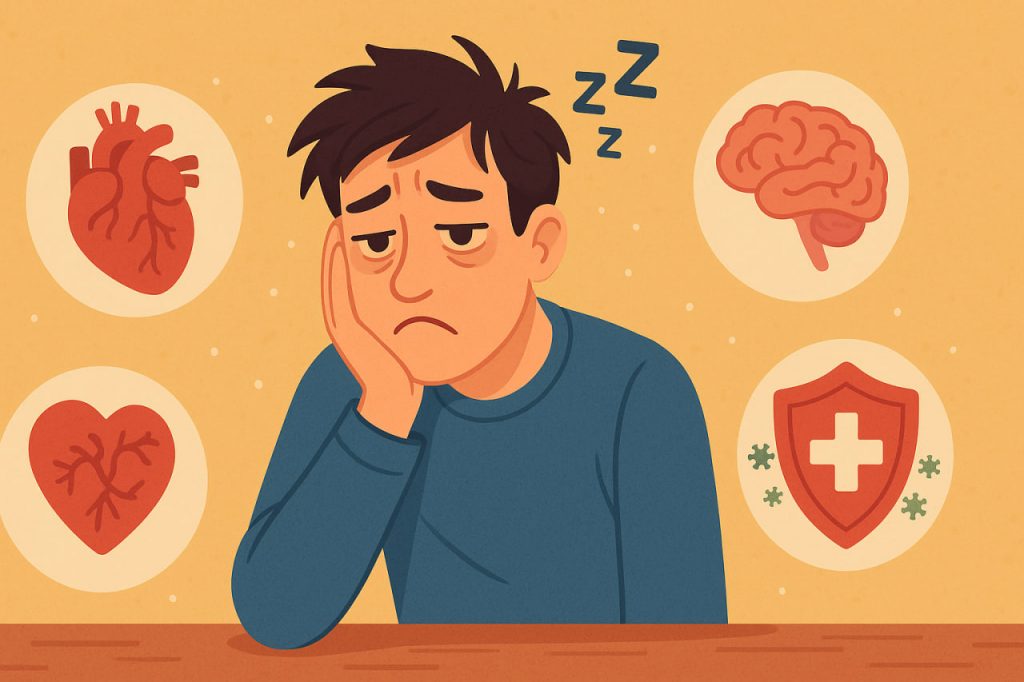Sleep is essential for physical recovery, mental clarity, and overall well-being. While occasional lack of sleep may cause short-term tiredness, chronic sleep deprivation—consistently getting less sleep than the body needs—can have serious long-term consequences. Adults generally require 7–9 hours of sleep per night, and when this need is not met, multiple body systems suffer, increasing the risk of disease and reducing quality of life.
Impact on the Brain and Mental Health
The brain depends on sleep to process information, consolidate memories, and regulate emotions. Chronic lack of sleep reduces concentration, attention span, and problem-solving abilities. It also increases the risk of mood disorders such as anxiety and depression. In severe cases, long-term sleep deprivation is linked to cognitive decline and may increase the risk of neurodegenerative diseases.
Hormonal and Metabolic Disruptions
Sleep is closely connected to the regulation of hormones. Chronic sleep loss disrupts the balance of ghrelin and leptin, hormones that control hunger and satiety, leading to increased appetite and weight gain. It also decreases insulin sensitivity, raising blood sugar levels and increasing the risk of type 2 diabetes. Metabolic slowdown and hormonal imbalance make it harder to maintain a healthy weight.
Cardiovascular Consequences
Consistently poor sleep puts strain on the heart and blood vessels. Chronic sleep deprivation is associated with high blood pressure, irregular heart rhythms, and a greater risk of heart disease and stroke. During sleep, the heart rate and blood pressure normally drop to give the cardiovascular system rest. Without enough sleep, this recovery process is disrupted.
Weakened Immune System
The immune system relies on sleep to stay strong. During deep sleep, the body produces cytokines, proteins that help fight infections and inflammation. Chronic lack of sleep reduces the body’s ability to produce these protective substances, making people more susceptible to colds, flu, and other illnesses. Recovery from illness is also slower without proper rest.
Everyday Risks and Performance
Sleep deprivation reduces alertness, reaction time, and coordination. This makes everyday tasks such as driving or operating machinery far more dangerous. Studies show that driving while severely sleep-deprived can be as hazardous as driving under the influence of alcohol. Workplace accidents and errors also increase when people are not well rested.
Conclusion
Chronic sleep deprivation is not just about feeling tired—it has wide-ranging and dangerous effects on the brain, metabolism, heart, immune system, and daily functioning. Over time, it can contribute to serious health problems and shorten lifespan. Prioritizing consistent, high-quality sleep is one of the most important steps for protecting long-term health and well-being.
Glossary
- Chronic sleep deprivation – consistently sleeping less than the recommended 7–9 hours per night.
- Ghrelin – a hormone that stimulates appetite.
- Leptin – a hormone that signals fullness and reduces appetite.
- Insulin sensitivity – how effectively the body uses insulin to regulate blood sugar.
- Cytokines – proteins that help regulate the immune response and fight infections.


